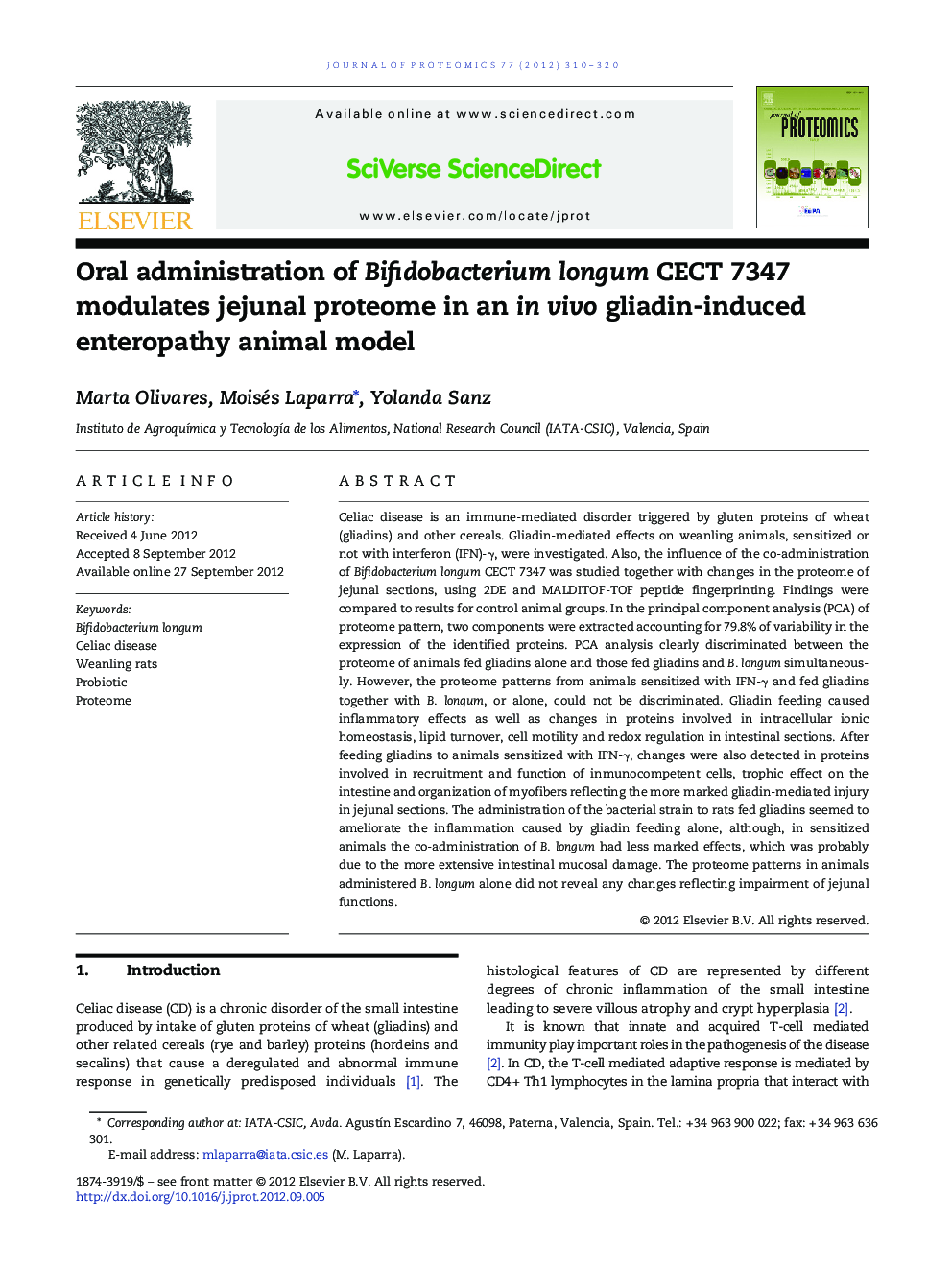| Article ID | Journal | Published Year | Pages | File Type |
|---|---|---|---|---|
| 1226604 | Journal of Proteomics | 2012 | 11 Pages |
Celiac disease is an immune-mediated disorder triggered by gluten proteins of wheat (gliadins) and other cereals. Gliadin-mediated effects on weanling animals, sensitized or not with interferon (IFN)-γ, were investigated. Also, the influence of the co-administration of Bifidobacterium longum CECT 7347 was studied together with changes in the proteome of jejunal sections, using 2DE and MALDITOF-TOF peptide fingerprinting. Findings were compared to results for control animal groups. In the principal component analysis (PCA) of proteome pattern, two components were extracted accounting for 79.8% of variability in the expression of the identified proteins. PCA analysis clearly discriminated between the proteome of animals fed gliadins alone and those fed gliadins and B. longum simultaneously. However, the proteome patterns from animals sensitized with IFN-γ and fed gliadins together with B. longum, or alone, could not be discriminated. Gliadin feeding caused inflammatory effects as well as changes in proteins involved in intracellular ionic homeostasis, lipid turnover, cell motility and redox regulation in intestinal sections. After feeding gliadins to animals sensitized with IFN-γ, changes were also detected in proteins involved in recruitment and function of inmunocompetent cells, trophic effect on the intestine and organization of myofibers reflecting the more marked gliadin-mediated injury in jejunal sections. The administration of the bacterial strain to rats fed gliadins seemed to ameliorate the inflammation caused by gliadin feeding alone, although, in sensitized animals the co-administration of B. longum had less marked effects, which was probably due to the more extensive intestinal mucosal damage. The proteome patterns in animals administered B. longum alone did not reveal any changes reflecting impairment of jejunal functions.
Graphical abstractFigure optionsDownload full-size imageDownload high-quality image (91 K)Download as PowerPoint slideHighlights► Feeding gliadins altered the jejunal proteome of newborn animals. ► B. longum partially counteracted gliadin-induced changes in jejunal proteome. ► B. longum could modify the early postnatal interactions with gliadin peptides. ► The results support beneficial effects of B. longum CECT 7347 to celiac disease.
